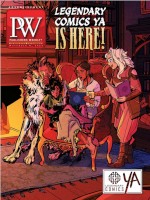In Legacy of Violence (Knopf, Mar.), Harvard historian Elkins explores how British imperial rule disguised a brutal, racist regime behind a facade of moral uplift.
How did the British Empire oppress its colonial subjects?
There are so many examples, all throughout its territory and history. In the South African War at the turn of the 20th century, tens of thousands of Afrikaner women and children died in “hostage camps” from hunger and disease, as did an equal number of Black African detainees. In Kenya, during the counterinsurgency against the Mau Mau rebellion in the 1950s, captives in British detention camps suffered horrific torture. During an uprising in Cyprus in the 1950s, British officials were called HMTs—“Her Majesty’s Torturers.”
You call the Empire an example of “liberal imperialism,” which sounds contradictory.
In the 19th and 20th centuries Britain became more democratic at home while ruling an economically exploitative empire of 700 million Black and brown subjects abroad. The philosophy of liberal imperialism reconciled that contradiction with a reformist vision: Blacks and browns in the Empire would someday become “British” and civilized, and gain self-government—but “not quite yet.” Of course, “not yet” never became “now.” Violent coercion was the flip side of the coin to reform. Liberal imperialists spoke of “the moral effect of violence,” or “rehabilitation.” Forced labor and torture supposedly helped child-like subjects mature.
The empire is gone, but does it still influence us?
Absolutely. Draconian martial law statutes and divide-and-rule policies were endemic to the Empire; these were legacies bequeathed to the post-colonial world. British identity is still an imperial identity, which shaped beliefs about Brexit. And the idea that Black and brown migrants from the Commonwealth could be “British” is still up for debate in the U.K. We see the legacy of liberal imperialism not just in Britain but in the U.S. and Europe, in attitudes toward affirmative action or toward immigrants who aren’t white or Western. It’s always the same trope: they’re not there yet, they can’t be like us.
What do you make of calls to take down statues of imperial icons like Cecil Rhodes and even Winston Churchill?
I don’t believe that taking down statues erases or distorts history. Burning or hiding documents—that certainly erases and distorts history. I was an expert witness in a lawsuit against the British government by Kenyan survivors of detention camps, which led to the “discovery” of several hundred boxes of unreleased government files on the camps. My book is, in part, about how we write history when much of the evidence has been destroyed or concealed. This is an important moment, in which statues and documents are coming together to help us reassess how the world became what it is.
© tony rinaldo photography



 Volume 268
Issue 45
11/08/2021
Volume 268
Issue 45
11/08/2021





